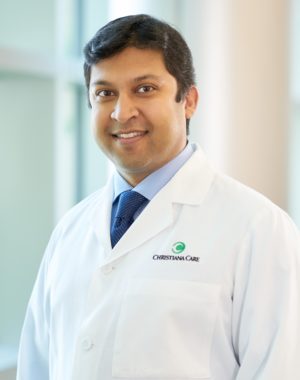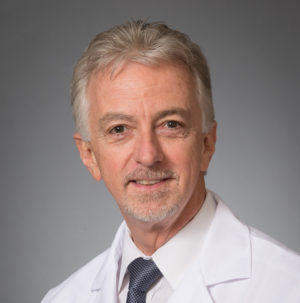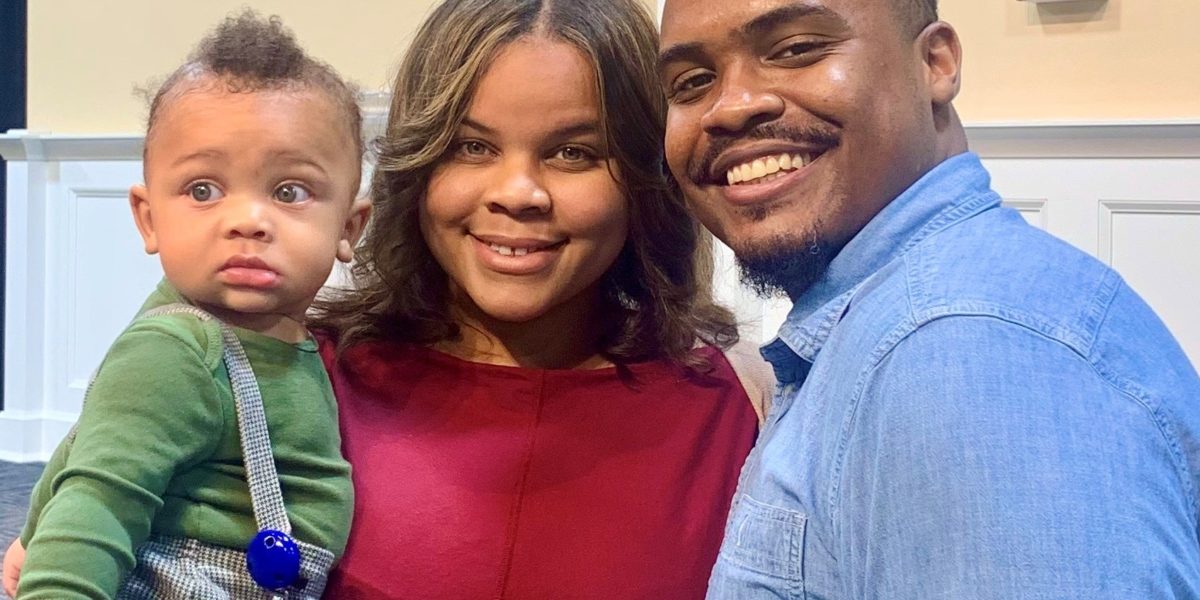
When Joshua Yearwood left Christiana Hospital in spring 2021, the Newark resident was taking eight medications to treat heart failure. His care team needed to gradually build the dosage to optimize the benefits without causing adverse side effects, a process known as titration.
“Everybody is different,” said Sourin Banerji, M.D., medical director of Advanced Heart Failure and Mechanical Circulatory at ChristianaCare.
“I might be able to tolerate a higher dose of a certain medicine than you might. You have to titrate to the individual’s tolerance.”
To help oversee this process, ChristianaCare has partnered with Story Health, a startup company that offers virtual tools to optimize heart failure medications. The high-tech assistance is valuable: These medications increase survival while reducing heart-failure hospitalizations for patients like Yearwood.
“We are excited to partner with Story Health to provide extra monitoring to ensure patients are getting the right medications at the right time,” said Kirk Garratt, M.D., medical director of ChristianaCare’s Center for Heart & Vascular Health.
“We are also honored to provide input to Story Health as they roll out their product on a larger scale.”
Real-time results
To qualify for the Joint Commission’s advanced certification recognition, ChristianaCare’s Heart Failure Program must provide optimal heart-failure care management. The Story Health app is another example of how ChristianaCare is fulfilling that mission.

“In the standard titration protocol, patients regularly visit the doctor’s office for vitals assessments and to discuss symptoms and medication reactions,” Dr. Banerji said.
“Unfortunately, some patients wait until the appointment to share concerns instead of calling when they experience side effects. This leads to delays in optimization of their heart failure medications.”
A new father with a new job, Yearwood had a busy schedule that hampered in-person titration visits. With Story Health, patients can report their vitals and symptoms from the comfort of their own homes. Yearwood, for instance, uses a cellular-connected blood pressure cuff and scale, which delivers data directly to Story Health.
The company’s coaches, who are cardiology-trained nurses, place routine follow-up phone calls or text messages to monitor the patient. The communication works both ways. Patients can always call if they wish.
“If I have a question, I can call, and they get back to me immediately,” Yearwood said.
The ChristianaCare team is never out of the loop. Yearwood’s physicians can access the data at the same time it’s posted to Story Health.
“The clinic, in some sense, is brought to the patient,” Dr. Banerji said.
Staying informed
Patients still come to the clinic for lab tests. To keep them on track, Story Health coaches send appointment and lab reminders.
Click here for more information on ChristianaCare’s Heart Failure Program or call 302-733-1663.
Between the in-person visits and Story Health’s data, doctors can make informed decisions about increasing or decreasing a medication’s dose. If the next phase is approved, the doctor’s office gives a heads up to Story Health so everyone is on the same page and medications are optimized faster.
Dr. Banerji and his ChristianaCare colleagues are currently collecting data and providing critical feedback to Story Health. Early three-month data shows that the partnership is markedly improving the optimization of heart failure medications compared to the national registry.
As far as Yearwood is concerned, the at-home monitoring is working.

“It’s kept me informed,” he said of the app.
The 26-year-old is comfortable using technology. However, the equipment does much of the work. For instance, patients don’t send their blood pressure measurements to Story Health. Nor do they interpret them. The app does it for them.
What’s more, most smartphone users can manage the app, Dr. Banerji said.
“Either way, the specialists see the ‘story’ of the patient between visits rather than trying to gather up the history of what has transpired and what has been tolerated at
interval visits,” Dr. Banerji said.
Thanks to his team and Story Health’s coaching, Yearwood’s heart condition isn’t keeping him from living a full life.
“I’m back to work,” said the new father. “I feel great. I can do everything that I used to.”


